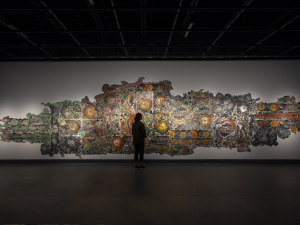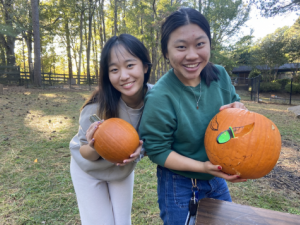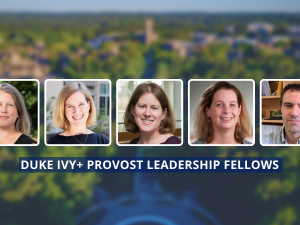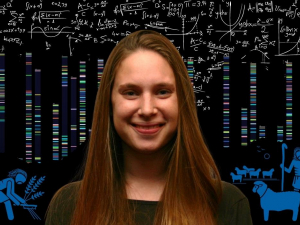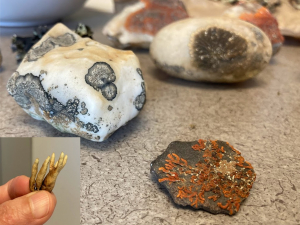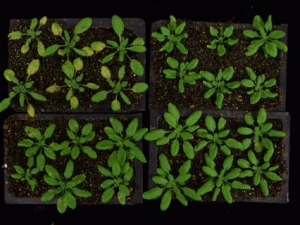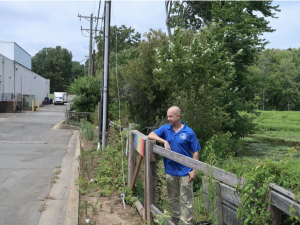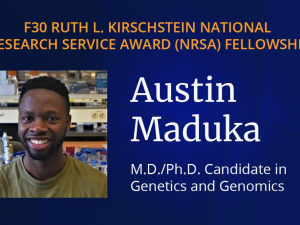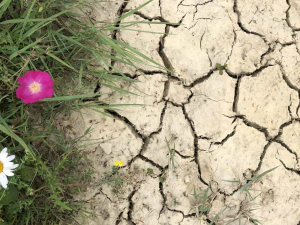Lichens, just like Chantal Harvey, thrive in the proximity of the sea. The Canadian artist lives in the small village of Baie-Johan-Beetz, along the Gulf of St. Lawrence, in the Côte-Nord region, far north along the Atlantic coast of Canada. Her house wouldn’t be out of place in a late-night Zillow dream. It’s a luminous red building planted firmly on the bare bedrock, mere feet away from the rolling sea and surrounded by water-carved monoliths and that hard and scrawny vegetation that seems to scream, “Life isn’t easy,… read more about When Science and Art Meet at the End of the Road »
It is with great sadness that we announce the passing of our colleague, Duke Professor and Herbarium Curator Emeritus Robert L. Wilbur (1925-2022). Bob passed away on 31 October 2022 with his family by his side. His long and distinguished career at Duke University began in 1957, when he joined the faculty of what was then the Botany Department. Over the course of many years, he was a professor, a former Department chair, a mentor to students, a taxonomist of temperate and tropical floras, the Curator of the… read more about Duke Flags Lowered in Honor of Robert Wilbur, Biology Emeritus Professor »
Junior Emily Miller is majoring in Biology with double minors in Theater Studies and Chinese — and can’t remember a point in her life when she wasn’t fascinated by the sciences.Her specific passion for biology began in middle school, when a science teacher’s enthusiasm for chemistry sparked Emily’s scientific interest. A year later, she dissected a cow’s heart in her eighth-grade biology class, and that hands-on experience was all it took to kick start her career path in the sciences.“I found it so fascinating that we could… read more about Theater Studies Gives This Medical Researcher the Creativity She Needs to Discover New Solutions »
Doug Boyer was a hit at his daughter’s kindergarten show and tell. The associate professor of Evolutionary Anthropology came armed with a life-sized, 3D-printed vertebra belonging to the world’s largest living snake, the green anaconda (Eunectes murinus). Once the students were done oohing and aahing over the plum-sized bone replica, he pulled a second vertebra, ten times larger than the anaconda’s, out of his bag. It was a life-sized replica of a vertebra belonging to Titanoboa, a snake that went… read more about How a Digital Repository Is Democratizing Science From a Duke Basement »
Amy Goldberg’s passion for human evolution probably started with the genetic anthropology books her father poured over during his Ph.D. studies. “I remember very clearly sitting and looking at one of his big textbooks and sounding out the word au-stra-lo-pith-e-cus when I was maybe nine or 10 years old,” she recalled. Goldberg is an assistant professor of Evolutionary Anthropology, Mathematics and Biology, which indicates how interdisciplinary her background is. While shared appointments between Biology and Evolutionary… read more about With Amy Goldberg, Mathematics Meets Genetics to Decode Our Evolutionary Past »
Emily Bernhardt, James B. Duke Distinguished Professor and chair of Biology, was elected as an American Geophysical Union (AGU) Fellow. AGU, a nonprofit organization that supports 130,000 enthusiasts to experts worldwide in Earth and space sciences, annually recognizes a select number of individuals as part of its honors and recognition program. Since 1962, the AGU Union Fellows Committee has selected less than 0.1% of members as new fellows. Bernhardt, who is also a professor at the Nicholas School of the Environment, is… read more about Emily Bernhardt Elected Fellow of the American Geophysical Union »
Jean Philippe Gibert is an associate professor of biology at Duke. He studies protists, single-cell organisms that are not fungi, bacteria, or archaea. He uses his lab's mathematical modeling and experimental studies to predict protists’ responses to climate change. Find out why Gibert is fascinated by these microscopic organisms and how they could respond to a rapidly warming planet. Watch more videos in the Why Do You Study This? on the Duke YouTube channel. read more about Studying Some Of The World’s Smallest Predators »
Jean Philippe Gibert is an associate professor of biology at Duke. He studies protists, single-cell organisms that are not fungi, bacteria, or archaea. He uses his lab's mathematical modeling and experimental studies to predict protists’ responses to climate change. Find out why Gibert is fascinated by these microscopic organisms and how they could respond to a rapidly warming planet. Watch more videos in the Why Do You Study This? on the Duke YouTube channel. read more about Studying the World’s Smallest Predator »
DURHAM, N.C. -- In times of war, factories retool to support the needs of battle. Assembly lines change course from turning out car parts to machine guns, or from building washing machines to aircraft engines. To hear Duke University professor Xinnian Dong tell it, plants can shift from peacetime to wartime production too. Crops and other plants are often under attack from bacteria, viruses, and other pathogens. When a plant senses a microbial invasion, it makes radical changes in the chemical soup of proteins -- the… read more about Plants Reprogram Their Cells to Fight Invaders. Here’s How. »
Shanice Webster, a postdoctoral researcher in the biology department, has been awarded a Howard Hughes Medical Institute (HHMI) Hanna H. Gray Fellowship to study how interactions between plants, their beneficial microbiome, and their pathogens underlie plant diseases. Webster is currently a researcher in the laboratory of Sheng-Yang He, Benjamin E. Powell Distinguished Professor of Biology. She is interested in understanding the mechanisms through which beneficial and harmful bacteria interact with one another in plants,… read more about Postdoc Shanice Webster Awarded Prestigious Hanna Gray Fellowship »
The Office for Research & Innovation has awarded funding to eight, interdisciplinary projects as part of the inaugural Duke Science and Technology (DST) Launch Seed Grant Program. This year’s winners include faculty from multiple disciplines across campus and the School of Medicine who were selected out of 61 proposal finalists for initiating high-impact projects that could lead to additional external funding. “The quality of innovative ideas our faculty have for advancing collaborative research projects… read more about Meet the Winners of the 2022 DST Launch Seed Grants »
Jason Dinh is a fifth-year Ph.D. candidate in Duke’s Department of Biology, focusing on animal behavior. On his journey through the science field, he stumbled across one of his hidden talents: writing. “I always knew I liked writing, and people tell me that I’m good at it, and I think it’s a fun, meditative way to gather my thoughts,” he said. However, science writing wasn’t in his career plans until the new year began, when he was awarded a the Mass Media Fellowship from the American Association for the Advancement of… read more about Exploring Career Paths: Ph.D. Candidate Jason Dinh Chats About Science Writing Fellowship »
The Office for Research and Innovation has awarded funding to nine best-in-class projects for the inaugural Duke Science and Technology (DST) Spark Seed Grant program. This year’s winners include early- to mid-career faculty from across campus and the School of Medicine who were selected from a pool of 52 finalists for delivering innovative and creative ideas in pursuit of new directions and the enhancement of research and scholarship at Duke. “As new scientific discoveries and breakthroughs continue to surface at Duke, we… read more about Duke Announces Winners of the 2022 DST Spark Seed Grants »

